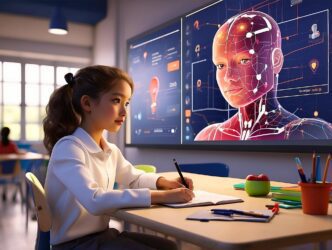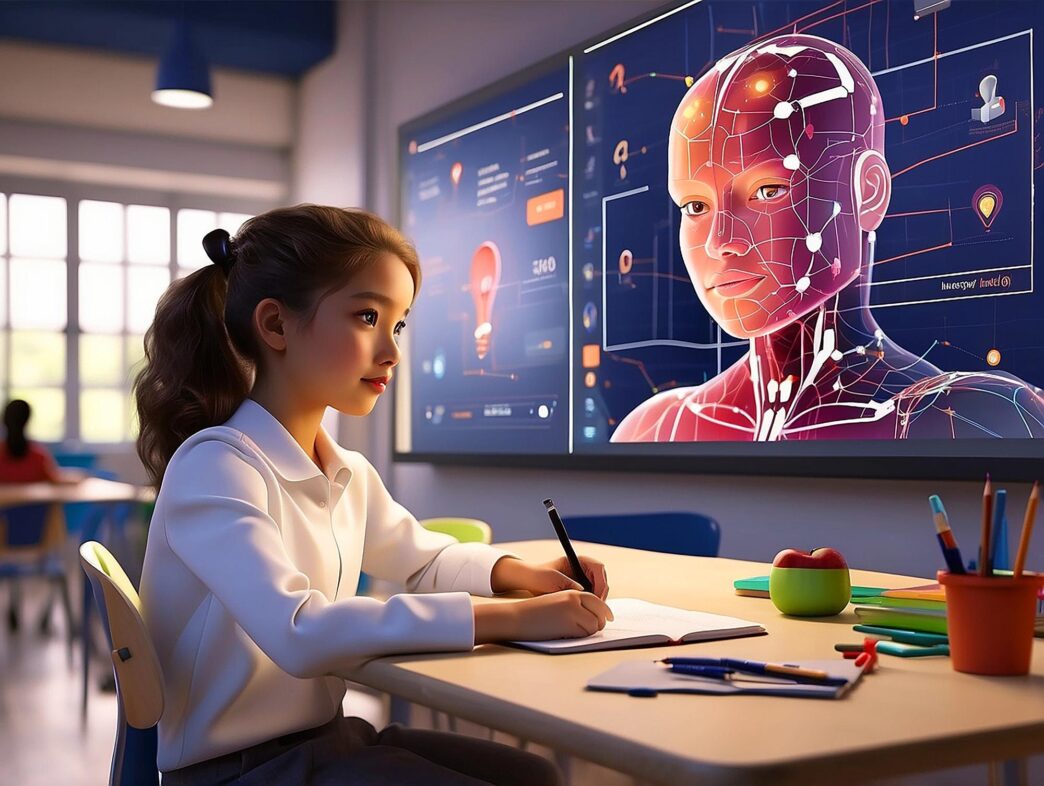Executive Summary
The Trajectory So Far
The Business Implication
Stakeholder Perspectives
Artificial intelligence is rapidly transforming the landscape of education, providing educators with an unprecedented suite of tools to personalize learning experiences, automate administrative burdens, and enhance student engagement. This technological evolution is reshaping traditional teaching and learning paradigms globally, moving from a one-size-fits-all approach to a highly individualized and data-driven educational journey for students at all levels.
The Shifting Landscape of Education
For decades, educators have grappled with the challenge of catering to diverse learning styles and paces within a single classroom, often burdened by extensive administrative tasks that divert time from direct instruction. The advent of AI offers a powerful solution, promising to alleviate these pressures and unlock new possibilities for both teachers and learners. By leveraging AI, educational institutions can move towards more efficient, equitable, and effective learning environments.
AI’s integration into education is not about replacing human educators but rather augmenting their capabilities. It allows teachers to focus on higher-order tasks such as mentorship, critical thinking development, and emotional support, while AI handles repetitive or data-intensive processes. This collaborative model empowers educators to be more effective and responsive to individual student needs.
Key AI Tools Transforming the Classroom
A diverse array of AI-powered applications is already making a significant impact in educational settings, streamlining operations and enriching pedagogical approaches.
Personalized Learning Platforms
AI-driven personalized learning platforms adapt content, pace, and teaching methods to each student’s unique needs and learning style. These platforms use algorithms to analyze student performance, identify areas of strength and weakness, and then deliver tailored recommendations and resources. This ensures that every student receives instruction that is optimally challenging and supportive, preventing disengagement from material that is either too easy or too difficult.
Automated Grading and Feedback Systems
One of the most time-consuming tasks for educators is grading assignments and providing constructive feedback. AI tools can now automate the grading of multiple-choice questions, short answers, and even essays, offering instant feedback to students. This not only saves educators countless hours but also provides students with immediate insights, allowing for timely correction of misconceptions and reinforcement of learning.
Intelligent Tutoring Systems (ITS)
Intelligent Tutoring Systems leverage AI to provide personalized, one-on-one instruction, much like a human tutor. These systems can explain concepts, offer hints, provide practice problems, and adapt their teaching strategies based on a student’s responses. ITS can identify learning gaps and provide targeted interventions, acting as a valuable supplement to classroom instruction.
Content Creation and Curation Tools
AI can assist educators in generating and curating educational content, from creating lesson plans and quizzes to summarizing complex texts and finding relevant multimedia resources. These tools can quickly identify and organize materials that align with specific learning objectives, significantly reducing the time educators spend on preparation and resource discovery.
Learning Analytics and Predictive Insights
AI-powered learning analytics tools collect and interpret vast amounts of data on student performance, engagement, and behavior. This data can provide educators with predictive insights, helping them identify students who might be at risk of falling behind, predicting future academic performance, and informing more effective instructional strategies. Such insights enable proactive interventions rather than reactive measures.
Virtual Assistants and Chatbots
AI-driven virtual assistants and chatbots can answer common student questions, provide information about assignments or school policies, and offer support outside of regular classroom hours. This frees up educators to focus on more complex student inquiries and provides students with immediate access to information, fostering greater independence.
Benefits for Educators
The integration of AI into education offers substantial benefits that empower educators to be more effective, efficient, and innovative in their roles.
Reclaiming Time
By automating routine and administrative tasks such as grading, scheduling, and resource management, AI allows educators to reclaim valuable time. This reclaimed time can be redirected towards more impactful activities, including personalized student interaction, curriculum development, and professional growth.
Enhanced Instructional Design
AI provides educators with data-driven insights into student learning patterns and performance. This information enables teachers to refine their instructional strategies, identify areas where the curriculum might need adjustment, and design lessons that are more targeted and effective. The ability to quickly analyze student progress allows for continuous improvement in teaching methodologies.
Professional Development
AI can also support educators’ ongoing professional development by recommending personalized learning resources, workshops, and courses based on their teaching needs and their students’ performance data. This ensures that teachers remain current with best practices and new pedagogical approaches.
Enhanced Learning Experiences for Students
Students are perhaps the greatest beneficiaries of AI’s integration into education, experiencing more engaging, personalized, and effective learning journeys.
Personalized Learning Paths
Students can learn at their own pace and through methods best suited to them, leading to deeper understanding and improved retention. AI ensures that content is neither too simplistic nor overwhelmingly complex, maintaining an optimal level of challenge and engagement.
Immediate and Targeted Feedback
The ability to receive instant, specific feedback on assignments and quizzes allows students to identify and correct errors promptly. This immediate reinforcement significantly aids the learning process, preventing the solidification of misunderstandings.
Increased Engagement
Interactive AI tools, gamified learning experiences, and immersive virtual reality simulations powered by AI make learning more dynamic and captivating. These engaging formats can transform traditionally dry subjects into exciting explorations.
Accessibility and Inclusivity
AI tools can break down barriers for students with diverse needs, offering features like text-to-speech, speech-to-text, and real-time language translation. This makes education more accessible and inclusive for students with disabilities or those from different linguistic backgrounds.
Addressing the Challenges and Ethical Considerations
While the potential of AI in education is immense, its implementation comes with crucial challenges and ethical considerations that must be carefully managed.
Data Privacy and Security
The collection of extensive student data by AI systems raises significant concerns about privacy and security. Educational institutions must implement robust safeguards to protect sensitive personal information and ensure compliance with data protection regulations.
Bias in Algorithms
AI algorithms are trained on data, and if that data reflects existing societal biases, the AI can perpetuate or even amplify those biases. Ensuring fairness and equity in AI systems is paramount to avoid discriminatory outcomes in student assessment or resource allocation.
Teacher Training and Adoption
For AI tools to be effective, educators require adequate training and ongoing support to integrate them seamlessly into their teaching practices. Resistance to new technology or a lack of understanding can hinder successful adoption.
Over-reliance and Critical Thinking
There is a risk of students becoming over-reliant on AI tools, potentially diminishing their critical thinking, problem-solving, and independent research skills. Educators must strategically use AI to augment, not replace, these essential cognitive processes.
The Future of AI in Education
The trajectory of AI in education points towards a future where technology and human expertise converge to create highly dynamic and adaptive learning environments. AI will continue to evolve, offering more sophisticated personalized learning, predictive analytics, and immersive educational experiences. The role of the educator will transform into that of a facilitator, mentor, and guide, leveraging AI to tailor instruction and foster deeper connections with students. Ultimately, AI is poised to make education more equitable, efficient, and engaging for all, preparing students with the skills necessary for a rapidly changing world.








